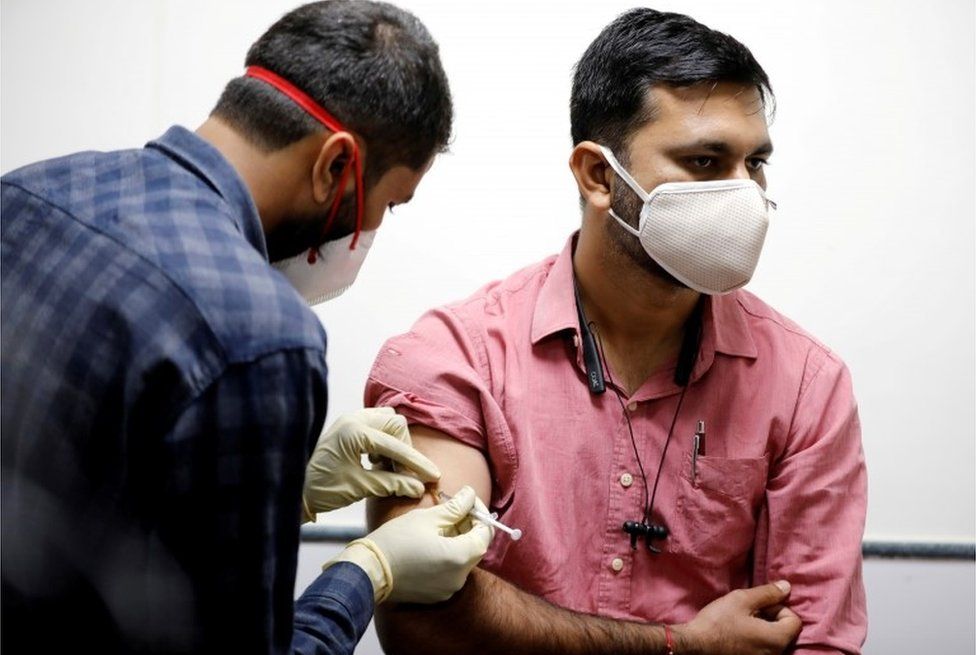Kalyani Shankar
India’s vaccine diplomacy has been steaming ahead and has set the pace for countering the Covid pandemic. It was indeed a big boost when as part of the first Quadrilateral Security Dialogue leaders’ meeting, the US, India, Japan, and Australian leaders decided to help India produce at least 1 billion vaccine doses to the Asia Indo-Pacific region.
The United States president, Joe Biden, Australia’s Prime Minister, Scott Morrison, Japan’s Prime Minister, Yoshihide Suga, and India’s prime minister, Narendra Modi, met virtually on March 12. The quad initiative aims to reduce manufacturing backlogs, speed vaccination, and defeat some coronavirus mutations. The funding would be from the U.S. and Japan and logistical help from Australia.
South Block claims that India has now become a ‘vaccine superpower’ in tackling the COVID-19 crisis. The new orientation is in tune with Modi’s significant foreign policy approach at projecting India as a global stakeholder. A Wall Street Journal (WSJ) editorial has praised India for its Covid diplomacy. “India has emerged the surprise leader of the global vaccine diplomacy race. It has exported three times more doses than and can spare even more without hurting its rollout,” it said.
New Delhi has not only managed to thwart China’s Covid diplomacy but also overtaken it. According to the United Nations, India has made more vaccine donations than China, with over eight million doses given away, compared with 7.3 million from China. Both are making vaccines for the rest of the world in addition to their vast populations inoculated. Chinese premier Xi Jinping has called Chinese medical supplies to the “Health Silk Road,” part of China’s ambitious Belt and Road Initiative. According to the Chinese Foreign Ministry, it plans to provide free vaccines to 69 countries and sell them to 28 countries.
India, too, has adopted vaccine diplomacy as part of its diplomacy.
External Affairs Minister S. Jaishankar declared in Parliament last week that the ‘vaccine Maitri’ (Vaccine friendship) program has “raised India’s standing and generated great international goodwill.” Giving details, the minister said, “In fact, we supplied 150 nations with medicines, 82 of them as grants by India. As our own masks, PPEs, and diagnostic kits grew, we made them available to other nations. This generous approach… It was also extended to the Vande Bharat Mission. Starting from Wuhan, we brought back nationals of other countries while looking after our own.”
‘Acting East’ and ‘acting fast’ is the new mantra for South Block. The Modi Government’s vaccine initiative got a boost, particularly in the neighbouring countries. For instance, strained ties with Nepal, Bangladesh, the Maldives, and Sri Lanka have improved after a timely vaccine supply. Indicating the importance, Sri Lanka and Dominica’s leaders personally received Indian-made vaccines at the airport, and the Mongolian prime minister took the Indian vaccine.
All these were possible because of India’s massive pharmaceutical industry accounts for about 20 percent of the world’s generic medicines and more than 60 percent of all global vaccine production.
How did India handle its Covid outbreak? Though there were some glitches, India’s performance has been good. With its 1.35 billion population, India accounts for ten million-plus infections and 153,000 deaths. It has administered 29.74 million doses as of March 15. However, the rising number of variants and a second surge of Covid in states like Maharashtra is causing concern.
The Government has approved two vaccines for emergency use on January 3 – Oxford-AstraZeneca’s Covishield, produced by SII, and Bharat Biotech’s Covaxin, India’s first home-built vaccine against covid-19.
There are some concerns about vaccine diplomacy in some quarters. The first is whether India will meet the demand, and the second is whether the vaccine diplomacy is taking place at the expense of its people? Union Health Minister Dr. Harshvardhan is confident that the Government has addressed them.
The Serum Institute of India (SII) – which produces Novavax and AstraZeneca vaccines – recently raised concerns about raw material shortages. Its chief executive, Aadar Poonawalla, alleged, “The sharing of these raw materials are going to become a critical limiting factor – nobody has been able to address this so far.” Another Indian manufacturer, Biological E, which produces the Johnson and Johnson vaccine, has also raised similar concerns. The other worry is that the country is lagging behind its target. However, there is optimism that other vaccines in the pipeline might ease this burden.
Overall, the covid diplomacy so far has yielded goodwill for India and some new friends. One can’t blame South block for riding on the new initiative. As the New York Times says Covid vaccine is the latest diplomatic currency.
feedbackexcelsior@gmail.com
Trending Now
E-Paper


